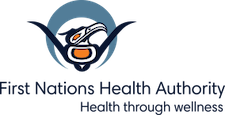It is important to stay in the clinic for 15 minutes after getting any vaccine. There is an extremely rare possibility of a life-threatening allergic reaction called anaphylaxis. This happens in less than one in a million people who get the vaccine. Symptoms may include hives, difficulty breathing, or swelling of the throat, tongue or lips. If this reaction occurs, your health care provider is prepared to treat it. Emergency treatment includes administration of epinephrine (adrenaline) and transfer by ambulance to the nearest emergency department. If symptoms develop after you leave the clinic, call 9-1-1 or your local emergency number.
Always report serious or unexpected reactions to your health care provider.
After getting the COVID-19 mRNA vaccine, you might be contacted to participate in a study monitoring the safety of the vaccine. To learn more about the study, please visit https://canvas-network.ca.
Who should not get the vaccine?
You should not get the vaccine if you have a serious allergy (anaphylaxis) to polyethylene glycol (PEG) which is in both COVID-19 mRNA vaccines. PEG can be found in some cosmetics, skin care products, laxatives, cough syrups and bowel preparation products for colonoscopy. PEG can be an additive in some processed foods and drinks, but no cases of anaphylaxis to PEG in foods and drinks have been reported.
Speak with your health care provider if you had anaphylaxis after a previous dose of a COVID-19 vaccine or if you have had anaphylaxis with an unknown cause.
Are there additional considerations to getting the vaccine?
Speak with your health care provider if you:
- Were diagnosed with inflammation of the heart (myocarditis or pericarditis) by a physician after a previous dose of COVID-19 vaccine without another cause being identified
- Have a history of MIS-C (a rare multi-system inflammatory syndrome) following COVID-19
- Have symptoms of COVID-19
If you have a new illness preventing you from your regular activities, you should wait until you have recovered. This will help to distinguish side effects of the vaccine from worsening of your illness.
What is COVID-19?
COVID-19 is an infection of the airways and lungs caused by the SARS-CoV-2 coronavirus. Symptoms of COVID-19 can include cough, shortness of breath, fever, chills, tiredness and loss of smell or taste. While some people with COVID-19 may have no symptoms or only mild symptoms, others can require hospitalization and may die. Serious illness is more common in those who are older and those with certain chronic health conditions such as diabetes, heart disease or lung disease. For some people, symptoms of COVID-19 can last for weeks or longer. The long-term effects of COVID-19 on a person’s health are unknown.
How is COVID-19 spread?
The virus that causes COVID-19 spreads from person to person by coughing, sneezing, talking, singing and breathing. It can also be spread by touching an object or surface with the virus on it and then touching your eyes, nose or mouth.
For more information on COVID-19 vaccines, visit BCCDC’s COVID-19 vaccine page www.bccdc.ca/health-info/diseases-conditions/covid-19/covid-19-vaccine
Mature minor consent
It is recommended that parents or guardians and their children discuss consent for immunization. Children under the age of 19, who are able to understand the benefits and possible reactions for each vaccine and the risk of not getting immunized, can legally consent to or refuse immunizations. For more information on mature minor consent see HealthLinkBC File #119 The Infants Act, mature minor consent and immunization.
For more information visit our Immunizations page .



